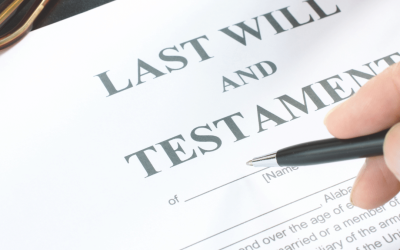Spain is set to become the first country in the European Union to implement a new regulation governing short-term rentals. This regulation is aimed at creating a more transparent and organized framework for short-term accommodation offerings, ensuring both landlords and tenants adhere to the rules set forth. Here’s everything landlords need to know about these important changes.
What is the new regulation?
The new regulation mandates that all owners of short-term rental properties in Spain must register their properties with the authorities and obtain a unique registration number. This applies to a variety of rental types, including tourist rentals, seasonal leases, and room rentals.
Starting January 2nd, 2025, Spain introduced a one-time registration system for all short-term rentals. A centralized digital platform will collect and manage this data, making it easier for both landlords and the government to track short-term rental activity.
Although the registration system will be live from January 2nd, the regulation won’t be fully enforced until July 1st, 2025. From that date forward, landlords will be required to have a registration number before listing their properties on online platforms like Airbnb, Booking.com, or any other digital rental site.
The period between January 2nd and July 1st is considered a transitional phase, allowing landlords to adjust to the new requirements and ensure their properties are properly registered.
What does this mean for landlords?
For landlords, the most important change is the requirement to obtain a registration number. This number must be obtained from either the Property Registry or the Movable Property Registry. Once registered, landlords will be required to display this registration number prominently on any online platforms where they advertise their properties.
Additionally, landlords will need to stay up-to-date with any changes regarding their rental properties, ensuring that all information is accurate. If there are any changes—such as property status or rental terms—they must be updated and communicated to the relevant online platforms.
Which homes are affected?
This regulation applies to all types of short-term accommodation that involve payments. Specifically, this includes:
- Tourist Rentals: Properties used for vacation or short stays, typically in tourist-heavy areas.
- Seasonal Rentals: Rentals that are offered for a limited time, usually tied to a particular season (e.g., ski properties in winter).
- Room Rentals: Individual rooms rented out within a larger property, either on a short-term or seasonal basis.
Any property rented for short-term stays for compensation (whether it’s an entire property, a part of a property, or a room) will fall under these new rules.
Moreover, online platforms such as Airbnb, Booking.com, and others will also be required to comply with these regulations. They must ensure that only registered properties with the proper registration number are listed on their platforms.
Renewable permit requirement
Once a landlord’s registration request has been approved and they receive their registration number, they will be required to renew it annually. Every 12 months, landlords will need to provide an anonymous list of all leases, including those with a primary destination different from the temporary one. This renewal ensures that the system remains up-to-date and that landlords continue to meet the necessary regulatory standards.
What should landlords do now?
To comply with the new regulation, landlords should take the following steps:
- Start the Registration Process: Begin the registration process as soon as possible to avoid delays when the new regulation is fully enforced in July.
- Review Your Listings: Ensure all property listings include the necessary registration number once issued.
- Stay Informed: Keep an eye on any changes to the regulations, especially as the transitional period draws to a close.
- Consult a Professional: If you have any questions about how this new regulation affects your specific situation, it may be a good idea to consult with a legal expert who specializes in real estate and property law.
In summary
The new regulation on short-term rentals in Spain represents a significant shift in how short-term rentals will be managed moving forward. While the full implementation won’t take effect until July 1st, 2025, landlords should begin the registration process now to ensure they’re in full compliance.
If you’re a landlord in Spain or planning to rent out a property on a short-term basis, now is the time to take action. The new regulatory framework will help bring transparency to the short-term rental market and ensure a fairer, more organized environment for both landlords and tenants.
If you have any questions or need assistance navigating the registration process, don’t hesitate to contact us at CPG Abogados. Our legal experts are here to guide you through the entire process and ensure you meet all the requirements.


